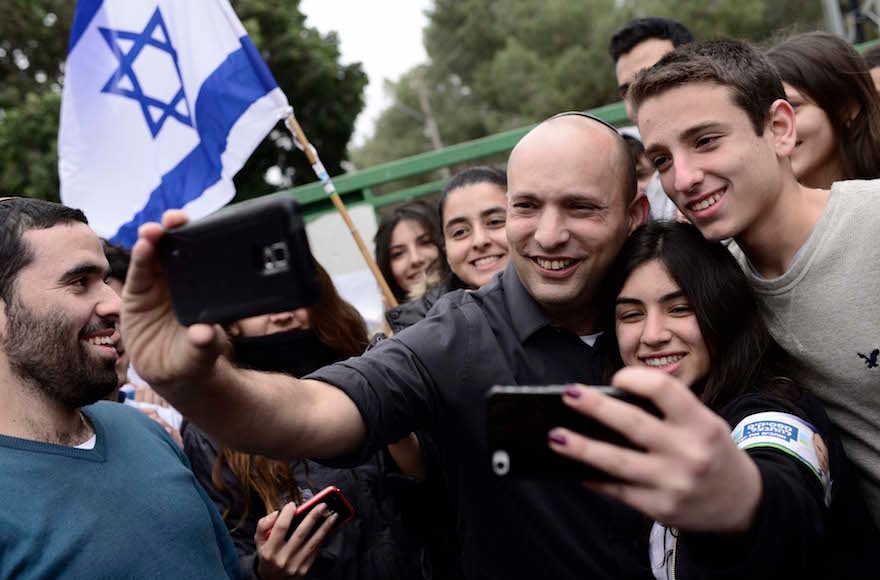Open Hillel calls on Hillel to reject funding by Naftali Bennett project
Published November 3, 2016

Naftali Bennett taking selfies with students at Bleich High School in the central Israeli city of Ramat Gan, Feb. 12, 2015. (Tomer Neuberg/Flash90)
(JTA) — Open Hillel, a network of student groups that promote open dialogue about Israel on college campuses, called on Hillel International to reject funding from a project led by Israeli Diaspora Affairs Minister Naftali Bennett.
In its statement, Open Hillel said that Bennett, a member of the right-wing Jewish Home party, has political views at odds with Hillel’s mission, including his opposition to legalizing same-sex marriage.
“Hillel cannot serve students of all backgrounds if it takes millions of dollars from an initiative that disrespects students’ families,” Open Hillel said in its statement.
Hillel is to receive $22 million over the next two years from Mosaic United, an organization that seeks to strengthen Israel-Diaspora ties by promoting Jewish identity. Mosaic United is also giving $22 million each to Chabad on Campus International and Olami, an Orthodox outreach group.
Mosaic United, previously known as the Israel-Diaspora Initiative, receives funding from the Israeli government and various individuals and groups. It falls under the purview of Bennett’s Diaspora Affairs ministry.
Open Hillel rejects Hillel International’s precepts banning events with speakers who advocate boycotting Israel.
In its statement it also objected to the fact that the Education Ministry under Bennett’s leadership excluded from Israeli schools a novel with a Jewish-Palestinian love story.
“Neither can Hillel claim to foster pluralism, inquiry, or real dialogue around Israel if it accepts millions of dollars from an initiative that seeks to censor critical discourse and to impede Jewish students’ ability to learn and question,” the statement read.
Earlier this year, non-Orthodox American groups criticized Mosaic United’s decision to award money to two Orthodox groups — Chabad and Olami — but not to any Reform or Conservative organizations.
The decision “continues the Orthodox monopoly in Israel and extends it to the Diaspora. This is unacceptable to the large majority of Jews here. We don’t like being told how to strengthen our Jewish identity,” Rabbi Rick Jacobs, president of the Union for Reform Judaism, told Haaretz at the time.














